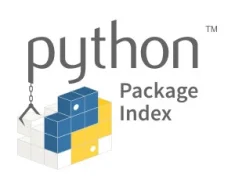One of the most pressing questions on people’s minds is: when will ChatGPT 5 be released, and what new features and improvements can we expect?
In case you missed it, OpenAI hinted that a new ChatGPT model is on the way, in a blog post on May 28. Since then, there’s been so much excitement building around its potential advancements.
Let me let you in on what we know, what to expect, the possible release date, and how it could impact various industries.
The Journey of ChatGPT
To understand the potential of ChatGPT 5, we might as well look at the evolution of its predecessors.
GPT-1
Release Date: June 2018
GPT-1 was the foundational model that started it all. With 117 million parameters, it introduced the concept of a transformer-based language model pre-trained on a large corpus of text. This pre-training allowed the model to understand and generate text with surprising fluency.
Significance: GPT-1 demonstrated that a model pre-trained on vast amounts of text could be fine-tuned for specific tasks with relatively small datasets. It was just like teaching a child to read extensively before guiding them on writing specific essays.
GPT-2
Release Date: February 2019
GPT-2 took a massive leap forward with 1.5 billion parameters, a tenfold increase over GPT-1. This version significantly improved the model’s ability to generate coherent and contextually relevant text, making it much more versatile and powerful.
Significance: GPT-2’s release was both exciting and controversial. Its potential for misuse led OpenAI to initially withhold the full model, emphasizing the need for responsible AI deployment.
GPT-2 was like upgrading from a basic bicycle to a powerful sports car, showcasing AI’s potential to generate human-like text across various applications.
GPT-3
Release Date: June 2020
GPT-3’s introduction marked a quantum leap in AI capabilities, with 175 billion parameters. This enormous model brought unprecedented fluency and versatility, able to perform a wide range of tasks with minimal prompting. It became a valuable tool for developers, businesses, and researchers.
Significance: GPT-3 was like having a Swiss Army knife for text-based tasks. Its ability to understand and generate text with minimal instructions made it invaluable in many fields, from creative writing to customer service and beyond. GPT-3 set a new standard for what AI could achieve.
ChatGPT
Release Date: November 2020
ChatGPT, based on the GPT-3 architecture, was specifically fine-tuned for conversational tasks. This version aimed to create more engaging and context-aware interactions, making it suitable for applications like chatbots, virtual assistants, and customer support.
Significance: ChatGPT’s ability to maintain context and generate human-like responses made it a significant step towards more natural and effective human-AI interactions. It was like having a skilled conversational partner who could assist with a wide range of queries and tasks.
ChatGPT-4
Release Date: March 2023
Building on the success of GPT-3, ChatGPT-4 brought further refinements in understanding and generating text. It enhanced the model’s ability to handle complex queries and maintain longer conversations, making interactions smoother and more natural.
Significance: ChatGPT-4’s improvements were akin to moving from a basic conversation to a great discussion with a knowledgeable friend. Its enhanced capabilities made it even more effective in customer support, education, and other interactive applications.
What’s New with ChatGPT 5?
ChatGPT-5 is definitely coming with several groundbreaking features and enhancements that could level up how we interact with AI.
Here are a couple of features you might expect from this next-generation conversational AI.
Better Context Understanding
One of the most significant improvements expected with ChatGPT-5 is its enhanced ability to understand and maintain context over extended conversations.
This means the AI will be better at remembering details from earlier in the dialogue. This will allow for more coherent and contextually relevant responses even as the conversation evolves.
Imagine having a conversation with an AI that can recall your preferences, follow complex instructions, and seamlessly switch topics without losing track of the original thread.
Multimodal Capabilities
ChatGPT-5 is likely to integrate more advanced multimodal capabilities, enabling it to process and generate not just text but also images, audio, and possibly video.
This would open up a ton of new applications, such as assisting in video editing, creating detailed visual content, and providing more interactive and engaging user experiences.
For instance, an AI that can analyze a photo of a plant and diagnose potential diseases or suggest care tips would be incredibly useful for both hobbyists and professionals.
Improved Personalization
With more sophisticated algorithms, ChatGPT-5 is expected to offer better personalization. The AI will be able to tailor its responses more closely to individual users based on their interaction history, preferences, and specific needs.
This personalized touch could make AI-driven customer service, tutoring, and personal assistant applications far more effective and satisfying.
Think of an AI that knows your favorite genres of books and movies, your preferred learning style, or even your daily schedule, and can provide recommendations or reminders accordingly.
Ethical AI Deployment
OpenAI has been progressively focusing on the ethical deployment of its models, and ChatGPT-5 will likely include further advancements in this area.
So yes, expect improved mechanisms for preventing the generation of harmful or biased content, better handling of sensitive topics, and more robust user controls to ensure the AI aligns with individual ethical standards.
This focus on ethics will help build trust and reliability in AI applications, making them safer and more acceptable in diverse environments.
Higher Efficiency and Scalability
Efficiency improvements in ChatGPT-5 will likely result in faster response times and the ability to handle more simultaneous interactions. This will make the AI more scalable, allowing businesses and developers to deploy it in high-demand environments without compromising performance.
Whether it’s managing thousands of customer queries at once or providing real-time support in a busy online classroom, ChatGPT-5’s enhanced efficiency will be a significant boon.
Advanced Learning and Adaptation
Another anticipated feature is the AI’s improved learning and adaptation capabilities. ChatGPT-5 will be better at learning from user interactions and fine-tuning its responses over time to become more accurate and relevant.
This continual learning process means the AI will grow more effective the more it is used, providing an ever-improving user experience.
Integration with Other Technologies
ChatGPT-5 should offer better integration with other technologies and platforms. This could include seamless compatibility with Internet of Things (IoT) devices, integration with various enterprise software solutions, and more robust APIs for developers.
Such integrations will expand the utility of ChatGPT-5 across different industries and applications. Yes, from smart home management to advanced data analysis in corporate environments.
ChatGPT 5 Release Date
So when can we expect ChatGPT 5? Late 2024 or Early 2025!
True, OpenAI has not yet announced an official release date for ChatGPT 5. However, based on the company’s past release schedule, we can make an educated guess.
ChatGPT 3 was released in June 2020, followed by ChatGPT 3.5 in November 2022. If OpenAI maintains a similar cadence, we can expect ChatGPT 5 to be released sometime in late 2024 or early 2025, given that ChatGPT 4 was launched in early 2023!
It’s important to note that various factors might influence the release timeline. Stuff like the progress of OpenAI’s research, the availability of necessary resources, and the potential impact of the COVID-19 pandemic on the company’s operations.
Real-World Applications
The enhancements in ChatGPT-5 are not just theoretical but have practical implications that can transform various sectors:
Customer Support
ChatGPT 5 could revolutionize customer support, providing accurate and context-aware responses that reduce the need for human intervention. It could handle more complex queries, improving efficiency and customer satisfaction.
Content Creation
With enhanced capabilities, ChatGPT 5 could be a valuable tool for writers, helping generate high-quality articles, scripts, and creative content with ease. It could assist in brainstorming ideas and refining drafts.
Education
Personalized tutoring and interactive learning tools could adapt more closely to individual student needs with ChatGPT 5. It most likely would offer tailored explanations and interactive learning experiences.
Healthcare
In healthcare, ChatGPT 5 will definitely improve patient interactions, provide accurate medical information, assist with research, and streamline documentation processes. It would also enhance telemedicine services and support healthcare professionals.
The Bottom Line
The excitement around ChatGPT 5 is palpable, and while many details remain unknown, the potential advancements are thrilling.
As we await official announcements from OpenAI, it’s clear that the future of conversational AI holds great promise. ChatGPT 5 could revolutionize various industries, offering new possibilities that were once thought to be science fiction.
FAQs
1. Will there be a ChatGPT 5?
Yes, ChatGPT 5 is expected to be released, continuing the advancements in AI conversational models.
2. What will GPT-5 do?
GPT-5 will offer improved language understanding, generate more accurate and human-like responses, and handle complex queries better than previous versions.
3. How to use ChatGPT 5 for free?
Using ChatGPT 5 for free may be possible through trial versions, limited-access options, or platforms offering free usage tiers.
4. What is the difference between GPT-4 and GPT-5?
The difference between GPT-4 and GPT-5 lies in enhanced capabilities. GPT-5 will have better language comprehension, more accurate responses, and improved handling of complex queries compared to GPT-4.




